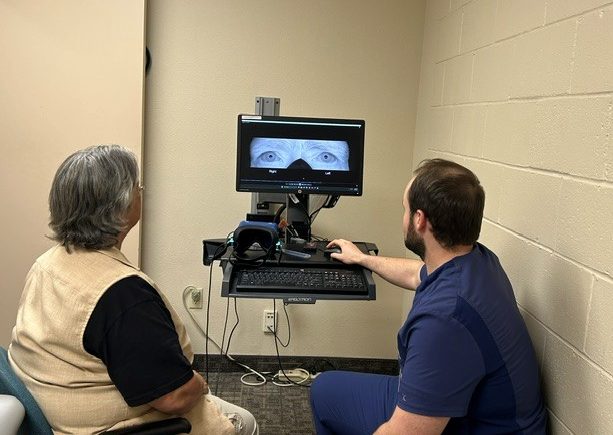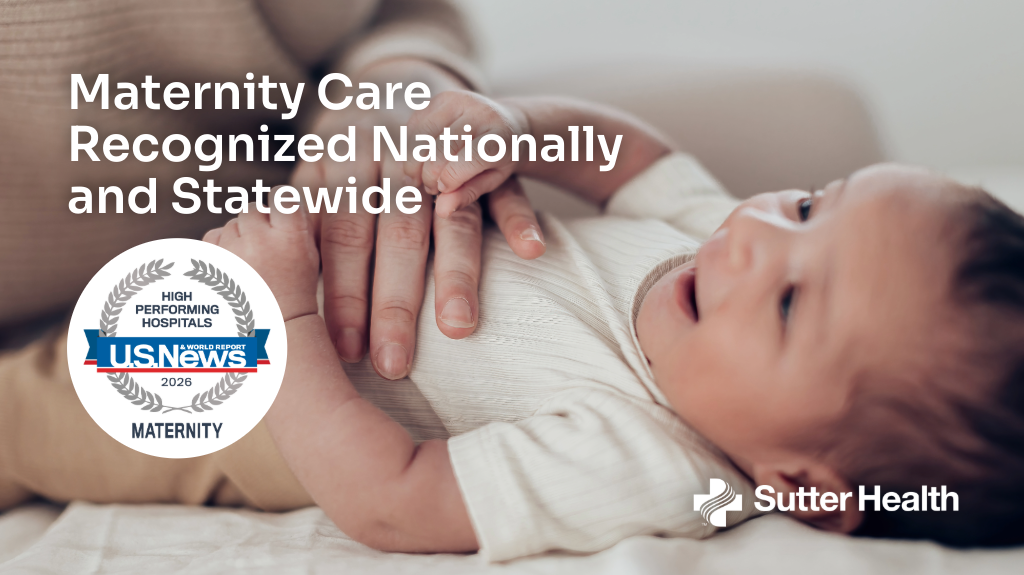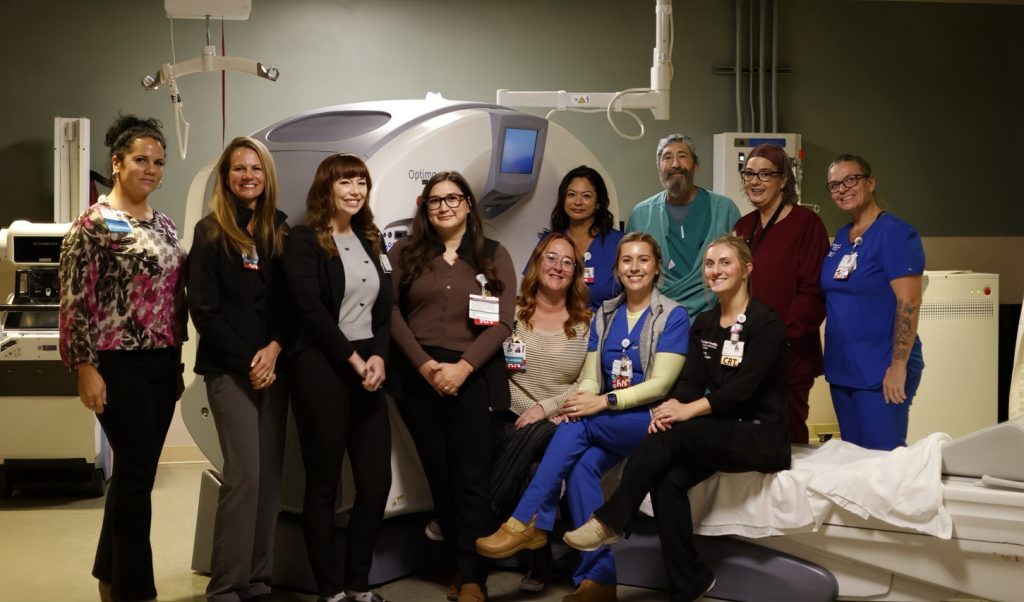Two trends are converging in America: the growing demand for mental health treatment and a widening shortage of psychiatrists to meet the need. In San Mateo County, several unique graduate medical education options seek to close the access gap by strengthening the pipeline of mental health providers.
Sutter Mills-Peninsula Medical Center’s inpatient psychiatric center, located at 100 South San Mateo Drive in San Mateo, is doing its part to help train future psychiatrists. The facility welcomed four new doctors this year, each working to complete their general psychiatry residency – a prerequisite before they can fully practice.
Since July 1, 2022 Sutter’s inpatient psychiatric center in San Mateo has hosted a one-month ‘rotation’ in partnership with San Mateo County’s Psychiatry Residency Training Program. Dr. Jonathan Manaoat, medical director of Sutter’s mental health program in San Mateo, says the kind of real-world, hands-on training that Sutter offers is invaluable for psychiatrists-in-training.
The clinical rotation is available for doctors in the third or fourth year, also known as post graduate year 3 or 4, of the County’s residency program. While not a formal requirement, the rotation at Sutter helps ensure that residents meet a minimum number of months working on an inpatient psychiatry unit and may provide their only exposure to inpatient adolescent psychiatric care.
“It’s a perfect marriage,” said Dr. Manaoat who is a child, adolescent, and adult psychiatrist with forensic training. “We serve a diverse patient population, which includes adolescents ages 13 to 17, and psychiatrists-in-the-making want to work here to gain experience in how to care for children.”
Sutter’s 13-bed adolescent inpatient psychiatric unit in San Mateo is the only one of its kind located between San Francisco and San Jose.
In fact, the unit is so unique, that it has also served as a rotation site for the Stanford Child and Adolescent Psychiatry Fellowship Program since 2017.
To-date, more than 55 adult psychiatrists have rotated at Sutter in San Mateo while completing their fellowship in child and adolescent psychiatry at Stanford. Typically, Stanford fellows will work at the San Mateo campus for three months at a time, while under the guidance of a supervising psychiatrist and psychologist.
Often in the first year of their fellowship while working at Sutter, the fellows focus on case conceptualization, diagnostic evaluation and individualized treatment planning, including pharmacotherapy, individual and family therapy and post-discharge planning.
Dr. Manaoat says that another advantage of Sutter’s psychiatric center in San Mateo is the opportunity to treat clients who are lower acuity – and require less intensive care. “We see lots of people who may be hospitalized for a short length of time, and then they transition to outpatient therapy while they are living back at home; you see the whole continuum of care here.”
In addition to its 39 inpatient beds, Sutter’s San Mateo Behavioral Health Department has an outpatient clinic offering both a partial hospitalization program and an intensive outpatient program, with differentiated care for older adults, adults, adolescents and individuals with mental health or chemical dependency diagnoses. Approximately 400 outpatient therapy visits are provided each month through the center.
Beyond directly providing mental health services and helping to train the next generation of providers, Sutter also invests in LifeMoves, a non-profit that offers comprehensive, integrated therapeutic services and supports to individuals and families experiencing homelessness in San Mateo and Santa Clara counties.
To-date Sutter has invested $200,000 in direct support to the LifeMoves Behavioral Health Doctoral Practicum Training program. Through this program doctoral-level psychology graduate students, supervised by licensed clinical psychologists, provide individual and group psychotherapy for the children, families, adults, veterans and older adults that LifeMoves serves. Graduate students interested in providing comprehensive and culturally-attuned neuropsychological assessments can also receive mentorship on this important skill through the LifeMoves program.
“Access to mental health services and housing are extremely high health priorities for San Mateo County,” said Bindi Gandhi, director of community health for Sutter in the Bay Area. “LifeMoves’ unique program addresses these tremendous needs while at the same time contributing to workforce development. We’re proud to partner with them.”
Sutter has a long history of working to improve the health of the underserved through community benefit activities and programs. These efforts are based on needs identified through Community Health Needs Assessments, which have routinely shown that access to mental health services is an unmet priority for many Northern Californians.
Read more about Sutter Health community benefit here: https://www.sutterhealth.org/community-benefit
Read more about mental health services at Sutter Health, here: https://www.sutterhealth.org/about/mental-health





